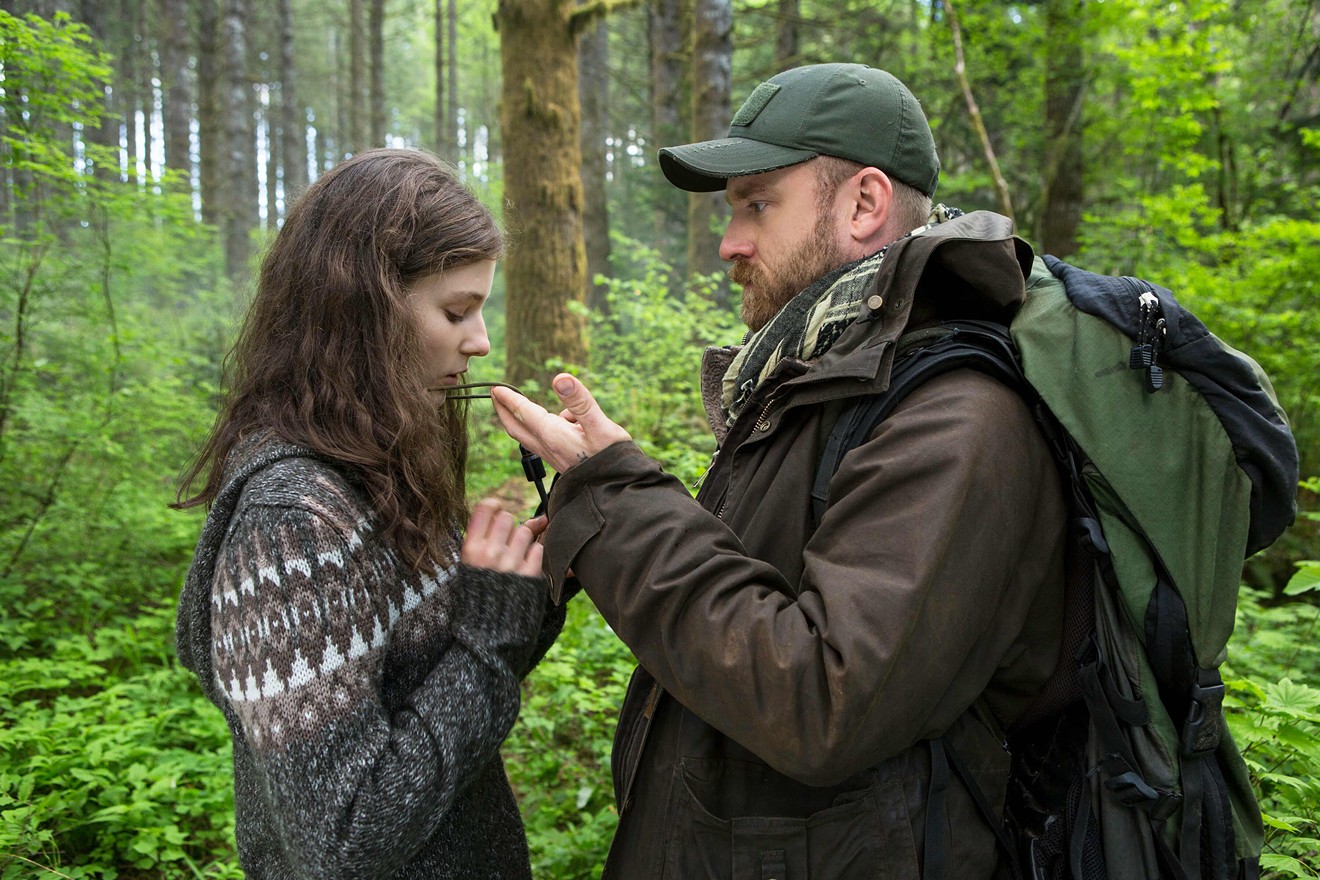The world needs more Debra Granik films, and we should be grateful for the ones we have. The director has always demonstrated a feel for the lives of people living on the margins. Her masterful 2010 Ozark coming-of-age thriller Winter’s Bone won Oscar nominations and introduced the world to a young Jennifer Lawrence. In the eight years since, Granik has made one documentary, the excellent Stray Dog, about an impoverished Vietnam vet and activist biker living with post-traumatic stress; her subject shunned much of society, even as he worked to aid his fellow veterans and survivor families.
In her latest, Leave No Trace, Granik appears to have taken the lessons and concerns of those previous works to tell a story about the need to escape from, and belong to, the world. Not unlike Winter’s Bone, this new film focuses on the experiences of a young woman on the far edges of society. This time, rather than a seventeen-year-old striving to hold her impoverished family together, it’s a thirteen-year-old trying to survive in the woods with her veteran father. But the film also reveals a keen understanding of an individual’s need to be apart, and the psychological and emotional blocks that prevent some from re-engaging with the world. It might not boast the genre elements that helped make Winter’s Bone something of a breakout, but Leave No Trace rivets and terrifies in its own way.
When we first meet Tom (the staggeringly good Kiwi actress Thomasin McKenzie), she and her father, Will (the intense and mesmerizing Ben Foster), are gathering and cutting wood for a fire and shooing away packs of dogs outside their tent. Right from these early scenes, there’s a delicate power to Granik’s visual storytelling: As we see the propane tanks and apple boxes and tarps that father and daughter have gathered, we don’t need to be told that these two are not just out camping; they live in the woods. And just like that, we’re enveloped in the perplexing drama of survival on the edge.
Tom and Will have been hiding out in a large public park in Portland, Oregon, making occasional trips into town to buy groceries and visit the hospital. A veteran, Will has issues with post-traumatic stress; for income, he sells his pain meds to dealers at a tent city. Tom and her father, we discover, are homeless not because they’re poor, but because Will has demons he can’t shake. He wants nothing to do with society — he consistently refers to the outside world, with its houses and its conveniences and responsibilities, as “them.” We never quite find out what exactly it is he’s running from, but we don’t need to: We understand that his contempt and fear are inchoate, irrational and unshakeable.
As a director, Granik conveys information with both understatement and clarity, but what really comes through in the film’s early scenes — and what helps keeps it from playing as a wallow in misery — is the tense tenderness between father and daughter. Tom and Will may live in stark independence, but they are totally co-dependent. Foster grounds Will’s terse, survivalist brusqueness in concern for his child; McKenzie beautifully portrays Tom’s desire to please her dad, as well as her happiness at simply being with him. After the authorities bring the two back into society and separate them, I was genuinely scared for what might happen to them. Granik shoots the spaces of “civilization” with low-key menace: When Will is forced to sit at a computer and answer hundreds of true-false questions for a personality test, she places him off-center in the composition, with obstructions in the frame. We feel his entrapment and discomfort.
Leave No Trace was adapted from Peter Rock’s 2009 novel, My Abandonment, but it’s not built around conventional story beats. Rather, it follows father and daughter as they drift between places — a trailer here, an abandoned shed there. But slowly we sense the two diverging in their needs: Tom is growing up and starting to realize she wants to settle down, to have a place she can call home and dreams she can call a future. But Will is unreachable. And so, this is ultimately a tale of letting go — of a parent learning to say goodbye to a child, and vice versa. I was reminded often of Cormac McCarthy’s apocalyptic parenting thriller The Road; I was also sometimes reminded of Manchester by the Sea, with its narrative of a man unable to shake his demons. I suspect I’ll be haunted by this picture for quite some time. Granik films with subtlety and quiet grace, but Leave No Trace explodes in the mind.
[
{
"name": "Air - MediumRectangle - Inline Content - Mobile Display Size",
"component": "12017618",
"insertPoint": "2",
"requiredCountToDisplay": "2"
},{
"name": "Editor Picks",
"component": "17242653",
"insertPoint": "4",
"requiredCountToDisplay": "1"
},{
"name": "Inline Links",
"component": "18838239",
"insertPoint": "8th",
"startingPoint": 8,
"requiredCountToDisplay": "7",
"maxInsertions": 25
},{
"name": "Air - MediumRectangle - Combo - Inline Content",
"component": "17261320",
"insertPoint": "8th",
"startingPoint": 8,
"requiredCountToDisplay": "7",
"maxInsertions": 25
},{
"name": "Inline Links",
"component": "18838239",
"insertPoint": "8th",
"startingPoint": 12,
"requiredCountToDisplay": "11",
"maxInsertions": 25
},{
"name": "Air - Leaderboard Tower - Combo - Inline Content",
"component": "17261321",
"insertPoint": "8th",
"startingPoint": 12,
"requiredCountToDisplay": "11",
"maxInsertions": 25
}
]











